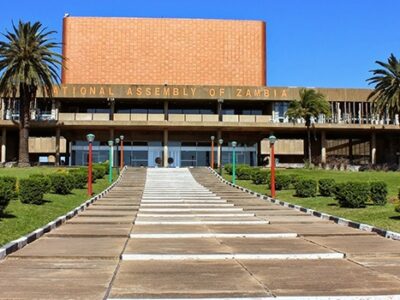Earning trust in free speech reforms in Zambia, or in any country, requires a multifaceted approach that includes transparency, engagement with civil society, accountability and adherence to international standards.
According to a report by Amnesty International titled Ruling with Fear and Repression, released in 2021, Zambia’s human rights situation had seen a marked deterioration over the last decade, particularly during the last five years under President Edgar Lungu’s leadership.
“People have increasingly been unable to engage in public demonstrations or protest against government policies and human rights record for fear of police violence, arbitrary arrest, detention, and repression, among other things.”
The report explained that criticism of senior government leaders or policies was often met with threats of arrest or violence.
Fearful of reprisals, many people and the media resorted to silence and self-censorship.
“Public meetings by political opposition and civil society are largely restricted on the grounds of public security or health.”
The way the Patriotic Front government governed led to a loss of trust in the government’s efforts to improve free speech reforms.
Natasha Mphanshi, a University of Zambia international relations student, said the government can earn trust in free speech reforms by ensuring complete media liberalization.
“The media in Zambia is not free; there is a need for the media to regulate itself. Only then will the public have trust in the government’s free speech reforms,” said Mphanshi.
She explained that politicians often champion free speech when in opposition but tend to view public criticism as defamation once in power. Mphanshi added that the government can also earn trust through accountability.
She cited the current load-shedding crisis, noting that the public has questioned why power is being exported amid the crisis.
“A lot of people are coming out to ask why we are exporting power, and the Energy Regulation Board has been dodging the question,” Mphanshi mentioned.
She explained that this lack of transparency has led to a loss of trust in the government.
Another University of Zambia student, Keziah Zunduna, said the government should establish a habit of direct engagement with the public.
“Having direct engagement with the public helps to enhance free speech because the public will feel heard by their leaders,” said Zunduna.
Rebuilding trust in free speech reforms in Zambia necessitates a comprehensive strategy that deeply engages with the public and reinforces fundamental democratic principles.
The troubling observations highlighted by Amnesty International emphasize the urgent need for the Zambian government to foster an environment where freedom of expression is not only protected but celebrated.
By facilitating media liberalization, ensuring accountability for government actions, and maintaining open lines of communication with citizens, the authorities can begin to repair the fractured relationship with the public.
Students like Natasha Mphanshi and Keziah Zunduna underscored the significance of transparency and direct engagement in restoring confidence in the government’s commitment to free speech.
Ultimately, the path to a more open and trusting society lies in a genuine commitment to human rights, where citizens can freely express their opinions without fear of repression.
Through these concerted efforts, Zambia can pave the way toward a more democratic and inclusive future, ensuring that every voice is heard and valued in the ongoing discourse of national governance.
WARNING! All rights reserved. This material, and other digital content on this website, may not be reproduced, published, broadcast, rewritten or redistributed in whole or in part without prior express permission from ZAMBIA MONITOR.












Comments